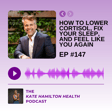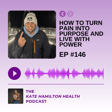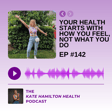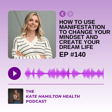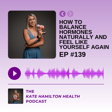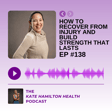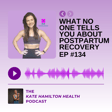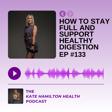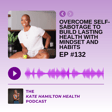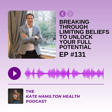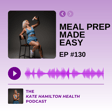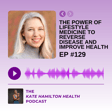
#119: A realistic guide to creating space for YOU, without burning out
In this episode of the Kate Hamilton Health Podcast, I’m talking all about how to create space for self-care - without the pressure of “finding more time.” If your to-do list is never-ending and you feel like you're constantly juggling chaos, this one’s for you. I break down why prioritising your health doesn’t mean adding more to your plate - it means being intentional with the time and energy you already have.
You'll hear my 4-step process to carve out meaningful space for self-care, prevent burnout, and build momentum in your wellness journey. Plus, I’ll walk you through my Healthy Lifestyle Continuum - ten foundational habits you can layer in slowly and sustainably to create long-term change. Whether you're just starting out or looking to reset your wellness routine, this episode offers real-life strategies for building a healthier, more balanced life.
EPISODE HIGHLIGHTS:
[0:00] - Welcome to the show!
[0:20] - Why "making more time" is a myth - and what to do instead
[0:49] - How to create space for self-care in your current routine
[1:42] - The power of self-reflection and breaking down your week
[3:41] - Tips for prioritising tasks and letting go of what’s not serving you
[6:16] - My step-by-step guide to the Healthy Lifestyle Continuum
[7:44] - 10 core habits that support a sustainable wellness journey
[14:06] - Navigating life’s ups and downs while staying grounded in your health
[17:15] - Final thoughts + how to get coaching support
Links & Resources:
If you enjoyed this episode, please subscribe, leave a review, and share it with friends who might benefit. For more health and fitness tips, follow me on Instagram and TikTok @katehamiltonhealth.
Music b LiQWYD Free download: hypeddit.com/link/xxtopb [http://hypeddit.com/link/xxtopb] Promoted by FreeMusicPromo [https://www.youtube.com/channel/UCbycji-eySnM3WD8mbxPUSQ] / @freemusicpromo

